This article was co-authored by Lisa Bryant, ND. Dr. Lisa Bryant is Licensed Naturopathic Physician and natural medicine expert based in Portland, Oregon. She earned a Doctorate of Naturopathic Medicine from the National College of Natural Medicine in Portland, Oregon and completed her residency in Naturopathic Family Medicine there in 2014.
There are 19 references cited in this article, which can be found at the bottom of the page.
This article has been viewed 78,968 times.
Having a low sperm count can be a tough thing to deal with, especially if you’re trying to have a baby. Fortunately, people overcome this problem all the time, so you have many options for improving your condition. Normally, your doctor will recommend a number of dietary and lifestyle changes to try and boost your sperm count naturally. However, if you have any conditions inhibit your sperm production, these steps might not work as well. If they don’t, then you can try some medical procedures to help correct the issue.
Steps
Dietary Adjustments
Although there isn’t a magic, fertility-boosting diet, food does play a big role in your reproductive health. Healthy foods rich in vitamins and minerals are important for supporting your sperm production and maintaining healthy sperm. Follow a balanced diet and cut out foods that could inhibit sperm production for the best results.
-
1Follow a healthy and balanced diet. A balanced diet provides all of the nutrients that your body needs. Include plenty of fresh produce, lean meats, whole grains, and healthy fats in your diet to support sperm growth. These nutrients can keep your sperm strong and healthy.[1]
- Healthy diets also help you maintain a healthy bodyweight, which could support your sperm health as well.
-
2Include at least 5 portions of fruits and vegetables each day. Fruits and vegetables contain vitamins and antioxidants that can protect your sperm from damage. Men with diets high in both tend to have higher sperm counts. Include at least 5 servings of these foods in your diet every day for the best results.[2]
- It’s easy to reach this serving recommendation if you include 1-2 portions in each meal. You can also have snacks throughout the day to add more produce servings.
- One study showed that leafy green vegetables like spinach, kale, and broccoli were especially helpful for sperm growth.[3]
-
3Get your protein from lean or plant sources. Sperm are made from protein, so you need to include this in your diet to support sperm production. Studies show that lean protein sources, particularly fish and low-fat dairy products, were particularly associated with healthier sperm. Get your protein from fish, poultry, nuts, beans, and dairy to support higher sperm production.[4]
-
4Cut out fatty and processed foods. This includes red meat, processed or cured meats like bacon, fast food, and fried meals. Studies demonstrate that unhealthy foods like these can decrease sperm health and number. Avoid these foods as much as possible.[5]
- While red and processed meats contain protein, they're not good for sperm health. Diets high in processed meats tend to cause a lower sperm count.[6]
- If you cook at home, try to use healthier cooking methods like baking, roasting, or boiling to avoid frying your food.
-
5Limit your intake of soy products. Some studies show that diets high in soy could reduce sperm production. Try to decrease your intake of soy and soy-based products to avoid affecting your sperm count.[7]
Lifestyle Tips
Just like with your diet, there isn’t a single lifestyle change that can boost your sperm production. More so, there are a number of steps you can take to protect your reproductive organs and support their function. The follow steps can prevent damage to your sperm production and could boost your overall sperm count.
-
1Maintain a healthy bodyweight. Being overweight could put more pressure and heat on your testes and inhibit sperm production. If you are overweight, speak to your doctor to find the ideal weight for yourself. Then design a diet and exercise program to reach and maintain that weight.[8]
-
2Try to keep your testes cool. Heat around your testes is one of the main reasons that sperm count could fall because high temperatures kill sperm. Take a few steps to prevent your testes from getting too hot and damaging your sperm.[9]
- Don’t rest your laptop or other electronics on your lap. These produce heat that could damage your sperm.[10]
- Avoid hot tubs or baths. These raise your sperm temperature too high.[11]
- If you’re exercising or work a physical job, try to take breaks to let your body cool down.
- Some tips say to wear loose underwear. This probably doesn’t make a big difference in your sperm temperature, but you can try it for yourself.[12]
-
3Exercise regularly to increase sperm quality. Moderate exercise totaling 150 minutes each week helps stimulate sperm production and keep them healthy. Try to exercise for at least 30 minutes each day to support your body’s sperm production.[13]
- You don’t have to do heavy exercise. Even a daily walk is good for your health.
- Be aware that excessive exercise might actually decrease your sperm count because of the increased heat. If you regularly do high-intensity exercise, take some time during the workouts to let your body cool down.
-
4Reduce stress to keep your hormones in balance. High stress can knock your body’s hormones out of balance, which interferes with sperm production. If you regularly feel stressed, then take steps to relieve that stress and keep your sperm production high.[14]
- Relaxation exercises like meditation, deep breathing, and yoga could be a big help. Try spending 10-20 minutes each day doing one of these activities to help calm yourself.
- Enjoyable activities and hobbies are a good way to reduce your stress as well. Try to find a few minutes each day for things you like.
-
5Quit smoking, drinking, and using illicit drugs. Smoking and using drugs, especially marijuana and cocaine, introduces a lot of chemicals into your body that could inhibit sperm production. If you have any of these habits, quit as soon as possible to avoid damaging your sperm. If you don’t smoke or use drugs, then don’t start at all. Also moderate your alcohol intake and don't go above more than 1-2 drinks per day.[15]
- If you don’t quit smoking while you’re trying to conceive, you should quit before your child is born. Smoking around children can lead to numerous health problems.
- Also avoid binge drinking altogether. If you only have 7 drinks, but they’re all in one night, then you’ve gotten almost an entire week’s worth of alcohol.
- Anabolic steroids also damage sperm. They’re also dangerous and illegal, so don’t use these drugs either.
-
6Try to avoid exposure to chemicals and pesticides. Some chemicals and toxins like lead or pesticides could interfere with your sperm production. Do your best to protect yourself from chemicals and toxins by following safety procedures and working in well-ventilated areas.[16]
- If you work around chemicals, wear protective clothing and equipment to limit your exposure.
- You might be exposed to pesticides in the food you eat. Try to find organic or pesticide-free foods to avoid accidental exposure.
-
7Practice safe sex to prevent STIs. Some STIs can damage your fertility and sperm production. Unless you’re in a monogamous relationship with a partner who tests negative for STIs, then use a condom every time you have sex to protect yourself.[17]
- If your partner is on hormonal birth control, this doesn’t protect either of you from STIs. Use a barrier method like a condom in addition to other birth control methods.
Supplements That Might Help
There are some herbal and health supplements that proponents claim can boost sperm count. Many of these lack strong evidence, but there are a few that might work. You can try them out to see if they work for you. Always ask your doctor before taking any health supplements, especially if you have a low sperm count, to make sure they’re right for you.
-
1Boost your sperm count with CoQ10. Coenzyme Q10 is a common health supplement for several different conditions. Studies demonstrate that this supplement could boost sperm count and mobility. Try taking this supplement to see if it works for you.[18]
- CoQ10 doses vary depending on the brand, but they commonly range from 50 to 200 mg per day. Follow the dosing instructions on the packaging.[19]
- Although CoQ10 probably increases sperm count, studies don’t prove that this increases fertility. You probably need to try other methods as well.
-
2Take vitamin E to improve sperm mobility. Vitamin E supplements might improve overall sperm health. This doesn’t work for everyone, but you could try boosting your vitamin E levels to see if you experience any benefit.[20]
- The general recommendation for vitamin E is 15 mg per day.[21]
- You could also get more vitamin E from seeds, nuts, vegetable oils, and leafy green vegetables.
-
3Try ginseng to improve your sperm quality. Ginseng is a popular health supplement, and it may improve mobility and overall health of your sperm. Try adding some ginseng supplements to your diet for an extra health boost.[22]
- Recommended ginseng doses vary from 100 to 1,000 mg, so follow the directions on the product you use.
- Ginseng could also improve libido and sex drive, which is also helpful if you’re trying to conceive.
Medical Takeaways
There are definitely some natural steps you can take to boost and maintain your sperm count. Living an overall healthier lifestyle might be all you need to do. However, these lifestyle steps might not help if you have a medical condition inhibiting your sperm production. In this case, you should speak with your doctor for further options. There are still medical procedures that can help you.
Expert Q&A
-
QuestionHow do I increase my nonexistent sperm count?
 Lisa Bryant, NDDr. Lisa Bryant is Licensed Naturopathic Physician and natural medicine expert based in Portland, Oregon. She earned a Doctorate of Naturopathic Medicine from the National College of Natural Medicine in Portland, Oregon and completed her residency in Naturopathic Family Medicine there in 2014.
Lisa Bryant, NDDr. Lisa Bryant is Licensed Naturopathic Physician and natural medicine expert based in Portland, Oregon. She earned a Doctorate of Naturopathic Medicine from the National College of Natural Medicine in Portland, Oregon and completed her residency in Naturopathic Family Medicine there in 2014.
Licensed Naturopathic Physician You can definitely start with the above-listed treatments. If that does not help, you can work with a reproductive specialist.
You can definitely start with the above-listed treatments. If that does not help, you can work with a reproductive specialist. -
QuestionHow do I increase my penis size?
 Lisa Bryant, NDDr. Lisa Bryant is Licensed Naturopathic Physician and natural medicine expert based in Portland, Oregon. She earned a Doctorate of Naturopathic Medicine from the National College of Natural Medicine in Portland, Oregon and completed her residency in Naturopathic Family Medicine there in 2014.
Lisa Bryant, NDDr. Lisa Bryant is Licensed Naturopathic Physician and natural medicine expert based in Portland, Oregon. She earned a Doctorate of Naturopathic Medicine from the National College of Natural Medicine in Portland, Oregon and completed her residency in Naturopathic Family Medicine there in 2014.
Licensed Naturopathic Physician This is more genetic than anything else. The size of your penis does not affect fertility and/or sperm count.
This is more genetic than anything else. The size of your penis does not affect fertility and/or sperm count.
References
- ↑ https://www.uchicagomedicine.org/forefront/health-and-wellness-articles/dont-make-the-mistake-of-letting-a-diet-kill-sperm
- ↑ https://www.nhs.uk/common-health-questions/mens-health/how-can-i-improve-my-chances-of-becoming-a-dad/
- ↑ https://www.uchicagomedicine.org/forefront/health-and-wellness-articles/dont-make-the-mistake-of-letting-a-diet-kill-sperm
- ↑ https://onlinelibrary.wiley.com/doi/full/10.1111/andr.12452
- ↑ https://www.uchicagomedicine.org/forefront/health-and-wellness-articles/dont-make-the-mistake-of-letting-a-diet-kill-sperm
- ↑ https://www.ncbi.nlm.nih.gov/pmc/articles/PMC4056648/
- ↑ https://pubmed.ncbi.nlm.nih.gov/18650557/
- ↑ https://www.eatright.org/health/pregnancy/fertility-and-reproduction/fertility-foods
- ↑ https://www.nhs.uk/common-health-questions/mens-health/how-can-i-improve-my-chances-of-becoming-a-dad/
- ↑ https://www.ncbi.nlm.nih.gov/pmc/articles/PMC5219578/
- ↑ https://www.ucsf.edu/news/2007/03/97970/hot-tubs-hurt-fertility-ucsf-study-shows
- ↑ https://www.ncbi.nlm.nih.gov/pmc/articles/PMC6530653/
- ↑ https://www.ncbi.nlm.nih.gov/pmc/articles/PMC5675222/
- ↑ https://www.ncbi.nlm.nih.gov/pmc/articles/PMC5922227/
- ↑ https://www.nhs.uk/common-health-questions/mens-health/how-can-i-improve-my-chances-of-becoming-a-dad/
- ↑ https://www.ncbi.nlm.nih.gov/pmc/articles/PMC7360961/
- ↑ https://www.fertility-academy.co.uk/blog/7-stis-that-affect-male-fertility/
- ↑ https://www.ncbi.nlm.nih.gov/pmc/articles/PMC6736512/
- ↑ https://www.aafp.org/afp/2005/0915/p1065.html
- ↑ https://pubmed.ncbi.nlm.nih.gov/12623744/
- ↑ https://ods.od.nih.gov/factsheets/VitaminE-HealthProfessional/
- ↑ https://www.ncbi.nlm.nih.gov/pmc/articles/PMC3861174/
- ↑ https://www.ncbi.nlm.nih.gov/pmc/articles/PMC6247182/
About This Article
The best way to increase your sperm count is to exercise regularly and maintain a healthy weight, as being overweight drastically lowers sperm count by decreasing testosterone levels. Try to get at least 150 minutes of moderate exercise, like jogging or swimming, every week to reduce stress, increase blood flow, and regulate your hormones. Also, avoid exposing your genitals to high temperatures since lower temperatures are better for sperm production. Consider switching to boxers or loose briefs, taking cooler showers, and keeping your laptop off your lap when you use it. In addition to these lifestyle changes, try to drink about a gallon of water every day, since sperm and semen are mostly made of water. For more advice from our Medical co-author, like how to use supplements to increase your sperm count, read on!
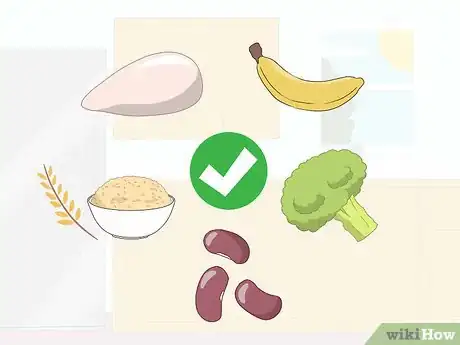

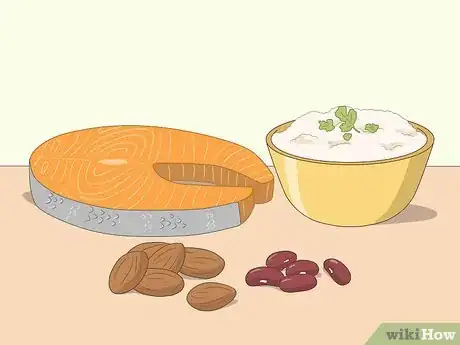
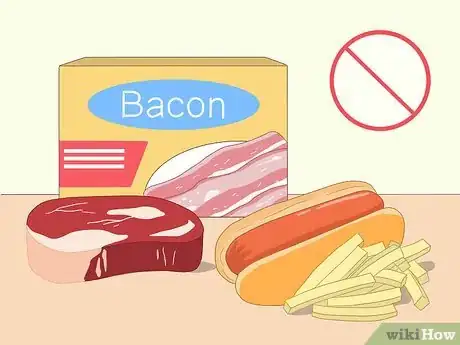
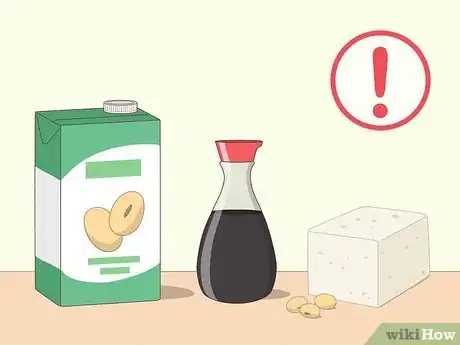

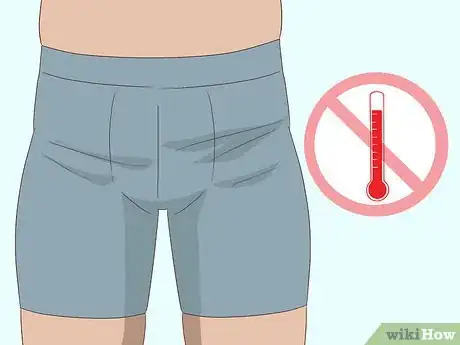



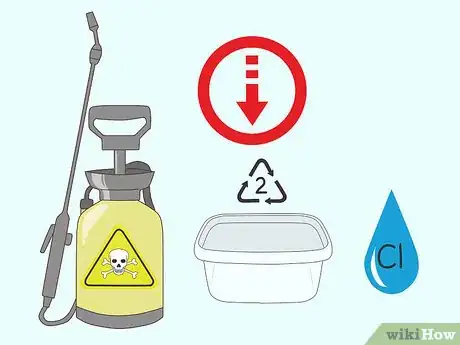

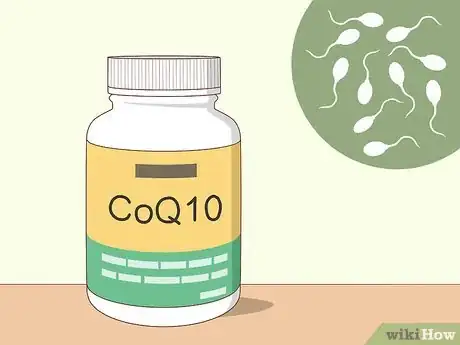
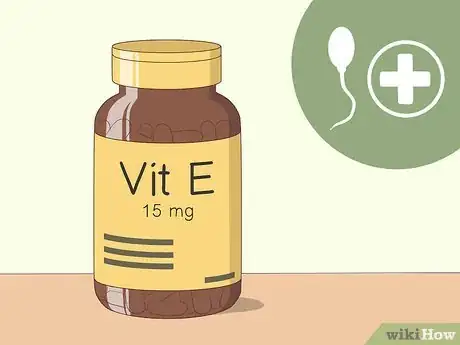
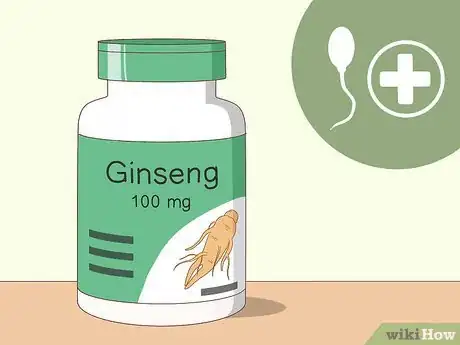

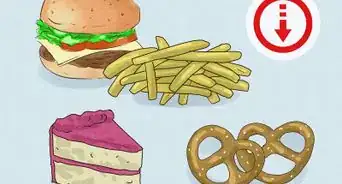




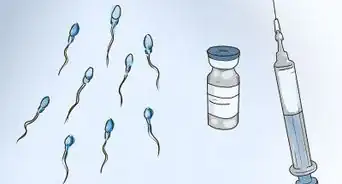



















































Medical Disclaimer
The content of this article is not intended to be a substitute for professional medical advice, examination, diagnosis, or treatment. You should always contact your doctor or other qualified healthcare professional before starting, changing, or stopping any kind of health treatment.
Read More...